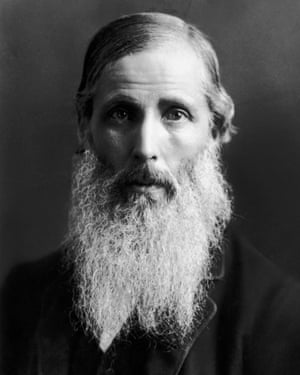
In The Methods of Ethics, a book read only by philosophers with an overdeveloped sense of duty, the late Victorian utilitarian moralist Henry Sidgwick argued that other philosophers of his day were wrong to believe that human beings act only for the sake of their own happiness or pleasure. There is a second spring of human action, he argues: the pursuit of excellence. A poet, a philosopher, or a sportsperson working obsessively may hope to be happy, but, more likely, what matters to them most is what they can achieve.
Sidgwick’s work faded from fashion soon after his death in 1900. At Cambridge University, where he had been professor, he became a symbol of times past. The young Bertrand Russell and his fellows referred to him as Old Sidg. But his fortunes revived in the 1980s, and he is being read by undergraduates again. I don’t know if the current generation of university regulators ever studied him, but, if so, they have only remembered half of what he taught. We have the Research Excellence Framework, and the Teaching Excellence Framework. Where is the Research Happiness Framework, or the Teaching Happiness Framework?

Still, if you wanted to be happy you might do better to keep clear of the higher education sector. For most academics and students the idea of making progress is about putting in the hard work and experiencing the frustration of getting most things wrong, most of the time. Almost everyone you talk to claims to have imposter syndrome, feeling that somehow they got their place or position as a result of clerical error. In the rare cases where they don’t, they probably ought to.
It’s the pursuit of excellence, not happiness, that is built into every university mission statement. But what do we mean by excellence? The philosopher Harry Frankfurt begins a paper on equality with a joke. “First man: how are your children? Second man: compared to what?” And here, I think, he has put his finger on our problem.
One kind of parent wants their children to reach their potential by developing their talents, forming strong relationships, achieving valuable goals, and having a satisfying life – excellence as flourishing. Another kind wants their children to come top of their class, and captain the team – excellence as winning. Universitiestalk the language of flourishing but a variety of league tables force us into competition. Our excellence is comparative.
And what exactly is the point of pushing universities to compete with each other? To keep us sharp and on our toes, no doubt. To drive up quality, innovation, and variety of supply. But competition can have other effects, too. Karl Marx points out that the natural logic of competition is that someone wins. The Research Excellence Framework accelerates this process by rewarding the winners with the resources to do even better next time. This can leave others struggling to keep up, and, rather than innovating, they may try to ape the strategies that have been successful for those at the top. We see this in teaching, too, where university after university is shrinking the supply of lower-demand subjects, such as languages, and aiming to boost market share by copying successful programmes elsewhere, especially those that, for the moment, have the highest earning potential.
Unlike free-market ideologues, economic regulators know that a competitive system is a delicate ecosystem, and to get its benefits loving care and attention are necessary. Otherwise, the relentless search for profits means every high street looks the same, with small, quirky shops driven out, and one retailer scooping up every online purchase. It is hard to set up a competitive system that rewards difference, and makes room for genuine innovation at all levels. In the HE sector at the moment it is hard to tell if we are even trying.
Although Sidgwick believed that individuals seek both happiness and excellence, eventually he reveals that he regards the pursuit of excellence as irrational unless it leads to a greater total of happiness in the world. Too bad he isn’t around to work out whether we have this right in the HE sector today.
[“source=theguardian”]
